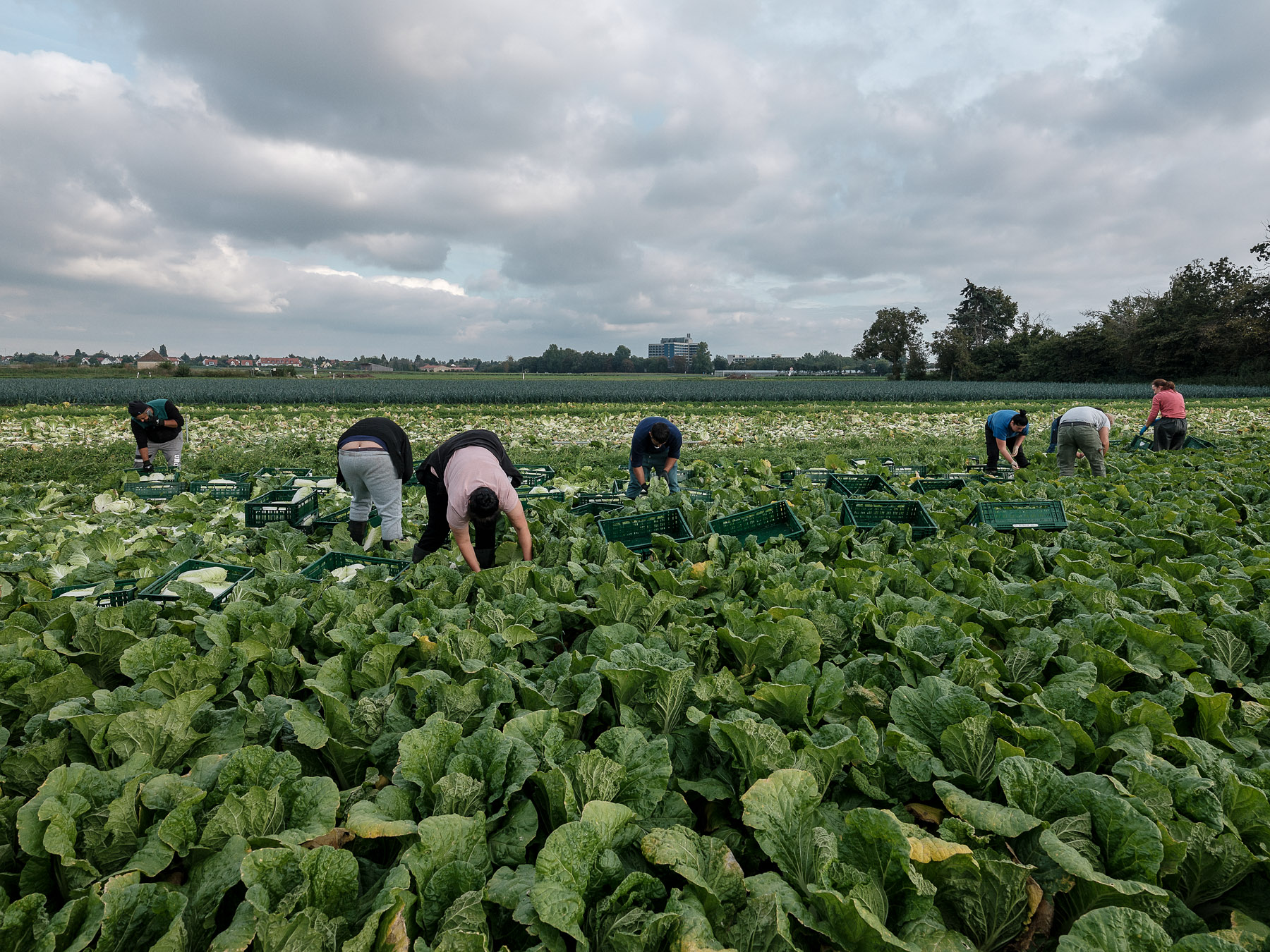This autumn we spent two weeks with Romanian seasonal workers picking apples at a farm in Cobham, Kent: a family of agricultors from Dăbuleni village, a mother who had her first baby when she was still a minor, and a woman who first worked abroad when she was 53.
We also met a Romanian couple who lives in the caravans on the farm campus all year-round, as well as the farm manager, a Romanian who started out picking apples in the U.K., but then worked as a tractor driver, became a farm supervisor and, a few years later, was promoted into management.
This report was originally written in Romanian, to read it and watch the video, click here.
This series was produced in partnership with the Pulitzer Center. Elena Stancu is the Pulitzer Center's 2021 Persephone Miel Fellow.
Paula Tălăban is upset because it’s rained today and, after 11 days of continuous work, the labourers were sent to their caravans to rest. Though they are drained, and on the table there is a large tube with ibuprofen cream that they use for their arm and back aches, Paula is unhappy that they’re “losing money”.
“There’s a hundred pounds lost for us, we’d have been better off going out to work,” she says. She is cooking bean soup in the caravan where she lives with her husband and son, on the Old Parsonage farm in Cobham, Kent, one of the five farms owned by Adrian Scripps Ltd., one of the biggest fruit growers in the UK.
Paula and her husband, Relu, both 48, came to work in the UK with their son Alin, 25. Since 2016, they have been working for a few months each year at the same farm and living in one of the 18 caravans that serve as shelters for the Romanian, Bulgarian, Polish, and Ukrainian workers.
The caravans are mobile homes with a kitchen, a WC and two or three bedrooms each. Showers and extra WCs are set up in two modular containers. The campus is right by the farm gate, and in the morning it takes workers five minutes to get to the picking area. Last year, when there were more of them, all the bedrooms were taken, but now their number has been cut in half, so a few of the caravans are unoccupied.
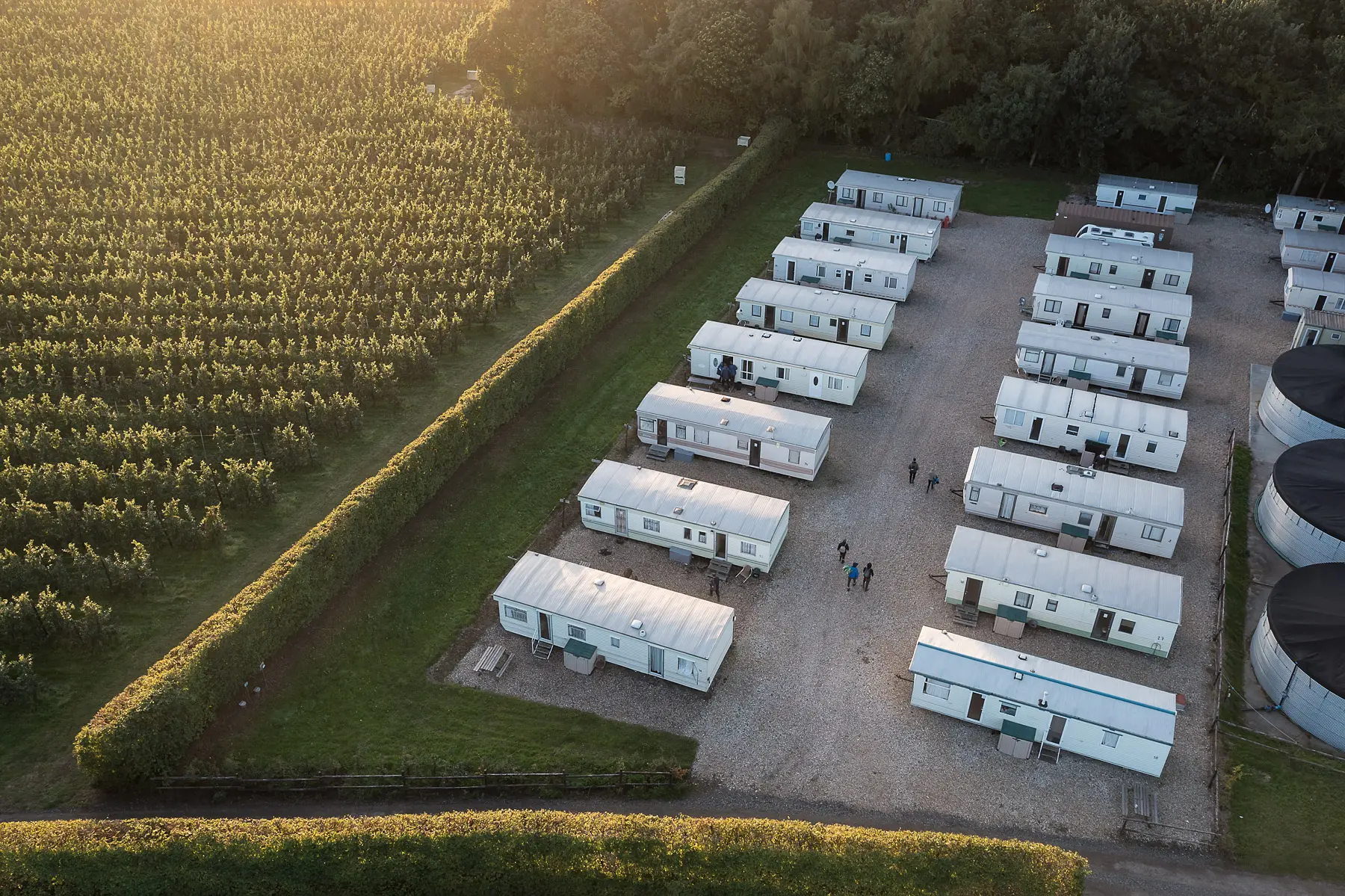
The campus smells of food, because the women keep the doors open while they cook. A few men are smoking outside, at the wooden tables, and techno music comes from the Ukrainians’ caravans. You don’t know if you should say Dobŭr den or Bună ziua for "hello," but you will be answered in both languages – Bulgarians can speak a little Romanian, Romanians can speak a little Bulgarian. A few of the younger workers have just gone to Canterbury, the nearby town, to check out a mobile phone store, and the women have left their sacks with dirty laundry in front of the washing machines, waiting for their turn.
The Tălăbans come from Dăbuleni, a village in southern Romania, where they also work in agriculture. They raise pigs and poultry and grow watermelons, tomatoes, cucumbers, sweet pointed peppers, cabbage, wheat, maize and beans on the four hectares of land they cultivate on their own.
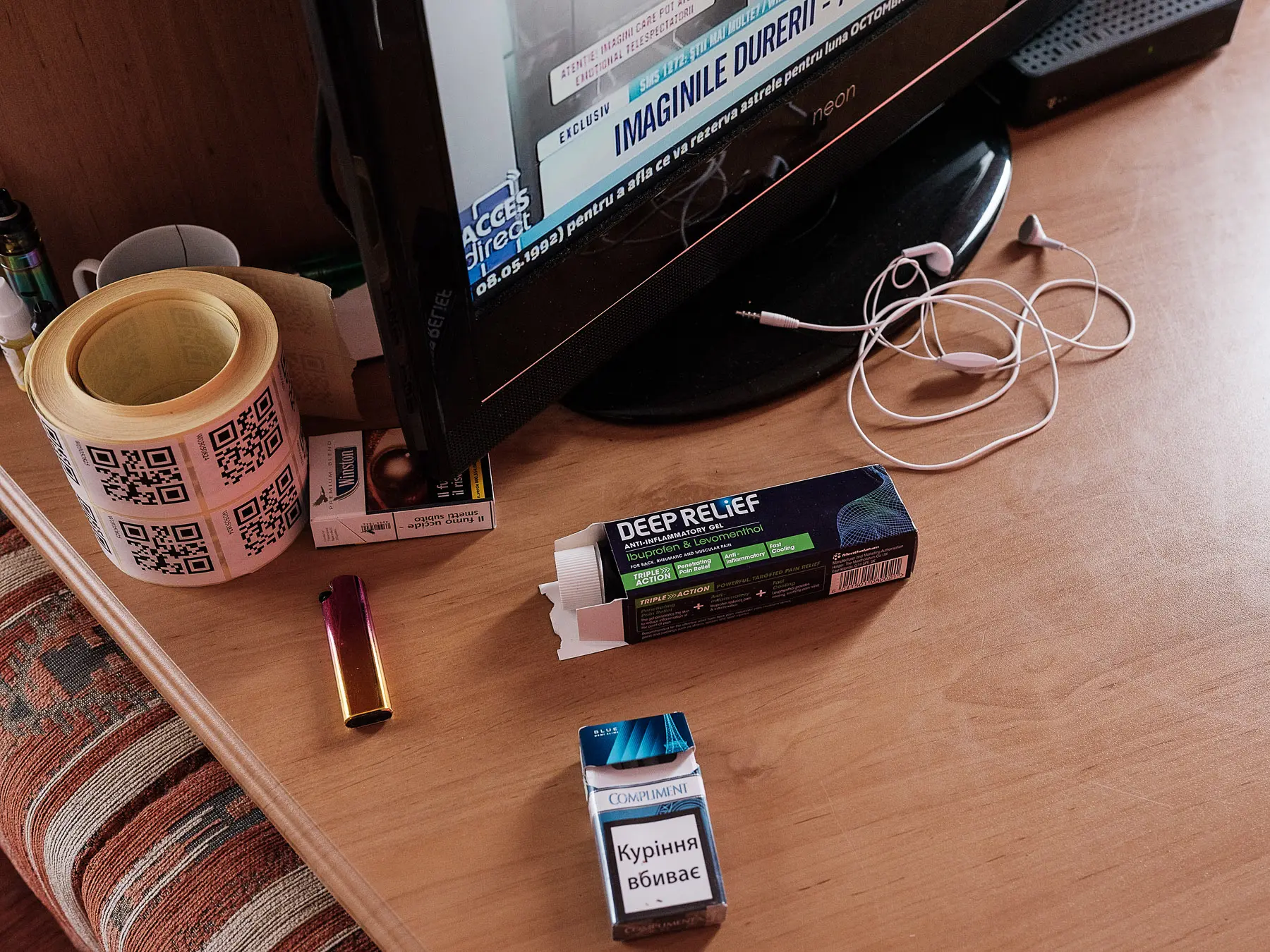
Back in their country, they make a living by selling their produce, though the business is not registered – a common situation for Romanian farmers. The state has had no strategy for small farmers. People have been working the land for generations without paying taxes or benefitting from any social security.
Paula, Relu, and Alin have no medical insurance in Romania, nor will they get an old-age pension. They signed their first employment contract in England, where they are better protected than in their home country.
Agricultors from Dăbuleni come to England to do seasonal work
At the Old Parsonage farm, workers get 18 pounds for each bin (approx. 350 kilograms of apples picked), earning about 120£ in gross wages in one day. Their income has gone up since last year, when one bin was worth 16£. The rent for the caravans is 28£ a week, but those who stay until the end of the picking season get their money back. After two months of work, a labourer can go home with 5.000£.
The Tălăbans come to the UK to make money, so they have to spend as little as possible. They will invest their earnings in the house they are building back home in Dăbuleni and the watermelons they will plant next spring, plus their day-to-day living in Romania, where their sole source of income is selling their produce at the market in the summer months.
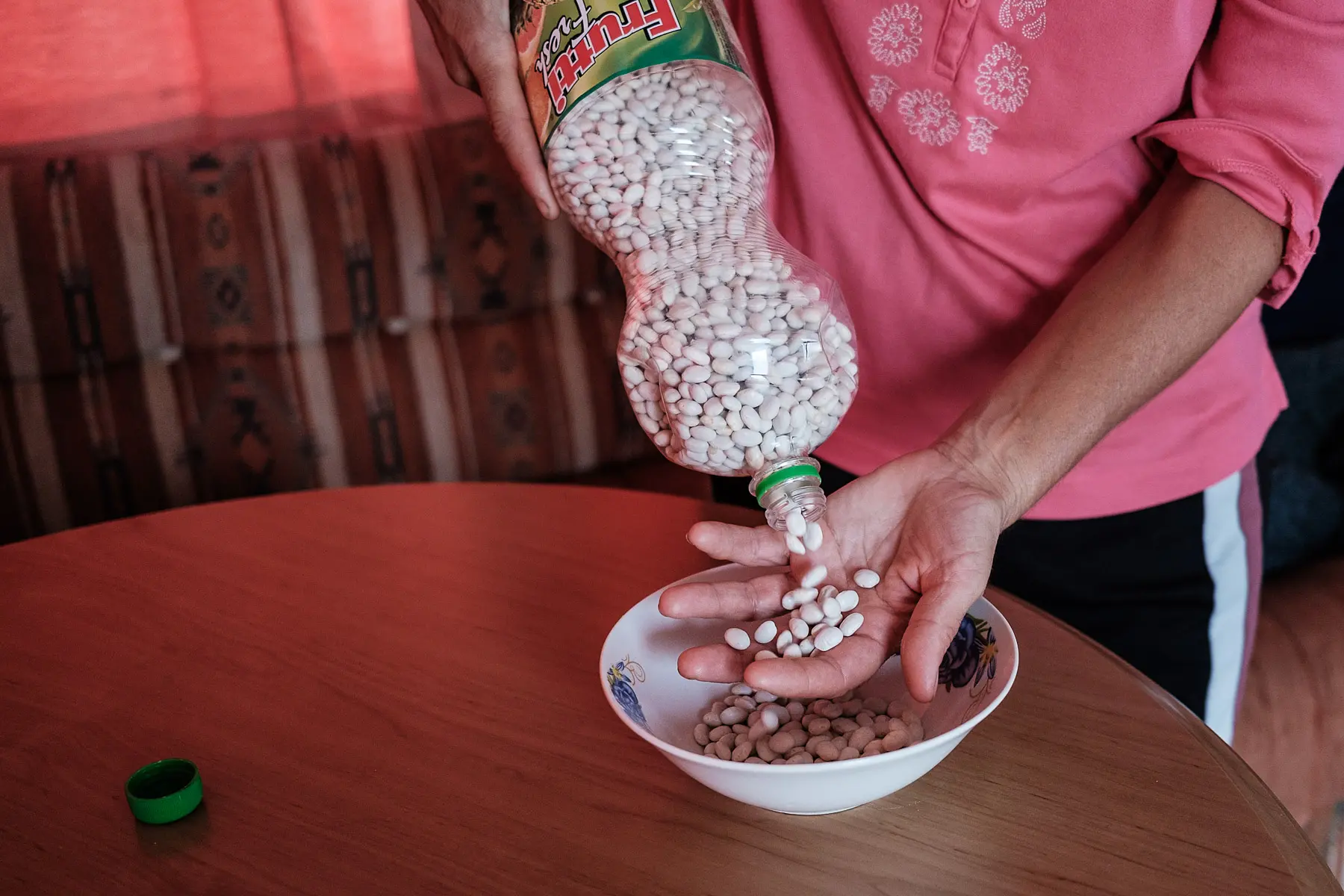
The beans Paula is cooking today were brought from Romania by minibus. They could find cheaper low-cost flights (the minibus ticket costs 125£), but on the bus each passenger is entitled to 50 kilos of luggage.
The Tălăbans come to the UK with dozens of kilos of food produced in their own household: pork preserved in lard, frozen meat, wine, cheese, sausage, tomato sauce, preserves, beans, onions, garlic, potatoes, aubergines and Dăbuleni watermelons, which weigh 10-15 kilograms each.
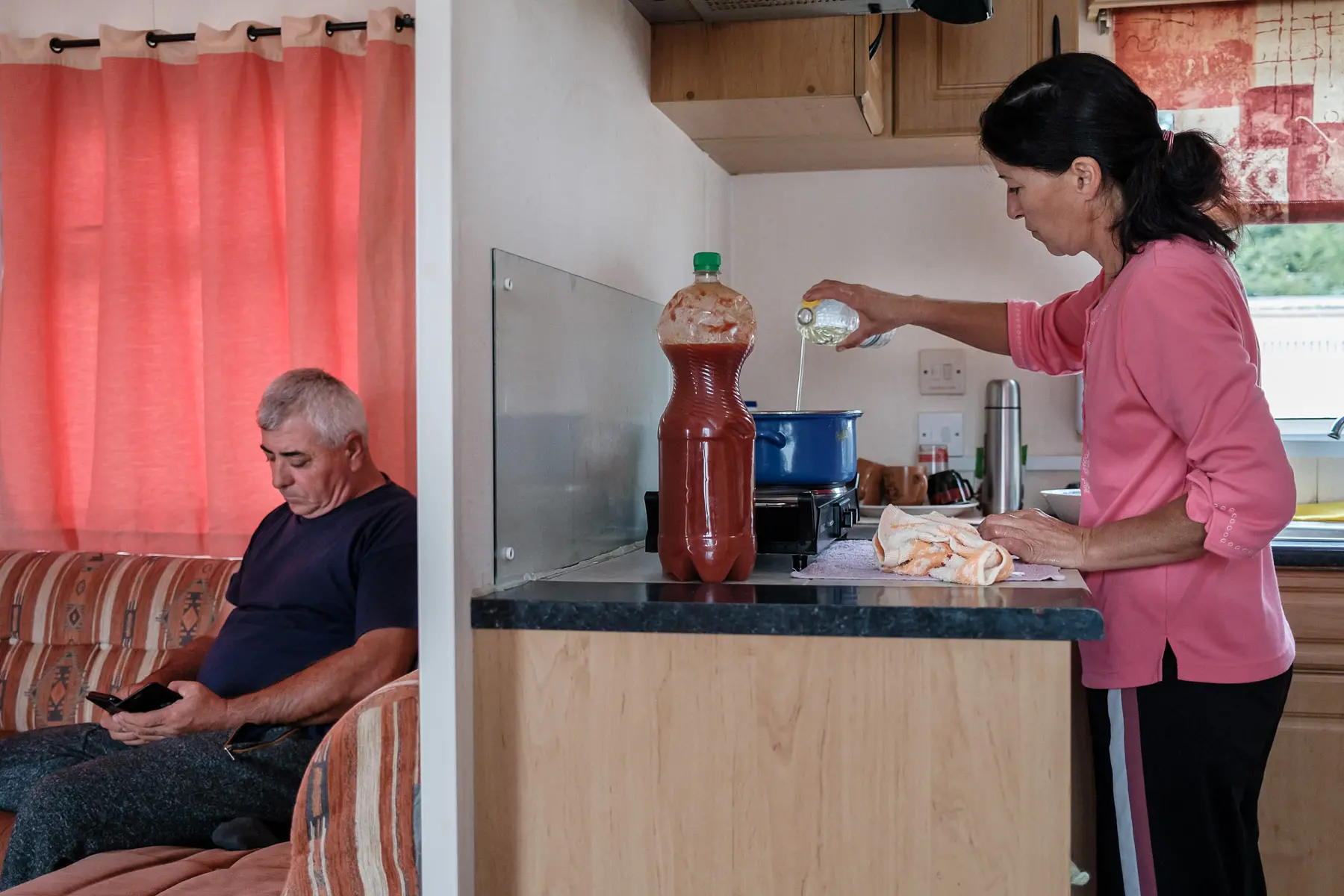
In the six years they’ve been coming to work here, they have never gone to see London, one hour by train from Cobham. They don’t speak English and are afraid they might get lost. They do their shopping once a week in Gravesend, with the double-decker bus provided by the farm, and Paula looks for the products that “give you most for your money.”
To Paula and Relu, life is nothing but work – in summer, working the land in southern Romania, where temperatures can exceed 40 degrees Celsius, and in autumn picking apples in the UK. They have never gone on a single holiday, “to save up.” The precariousness of their life in Romania, where they have never had a steady job, has taught them they can only rely on their savings.
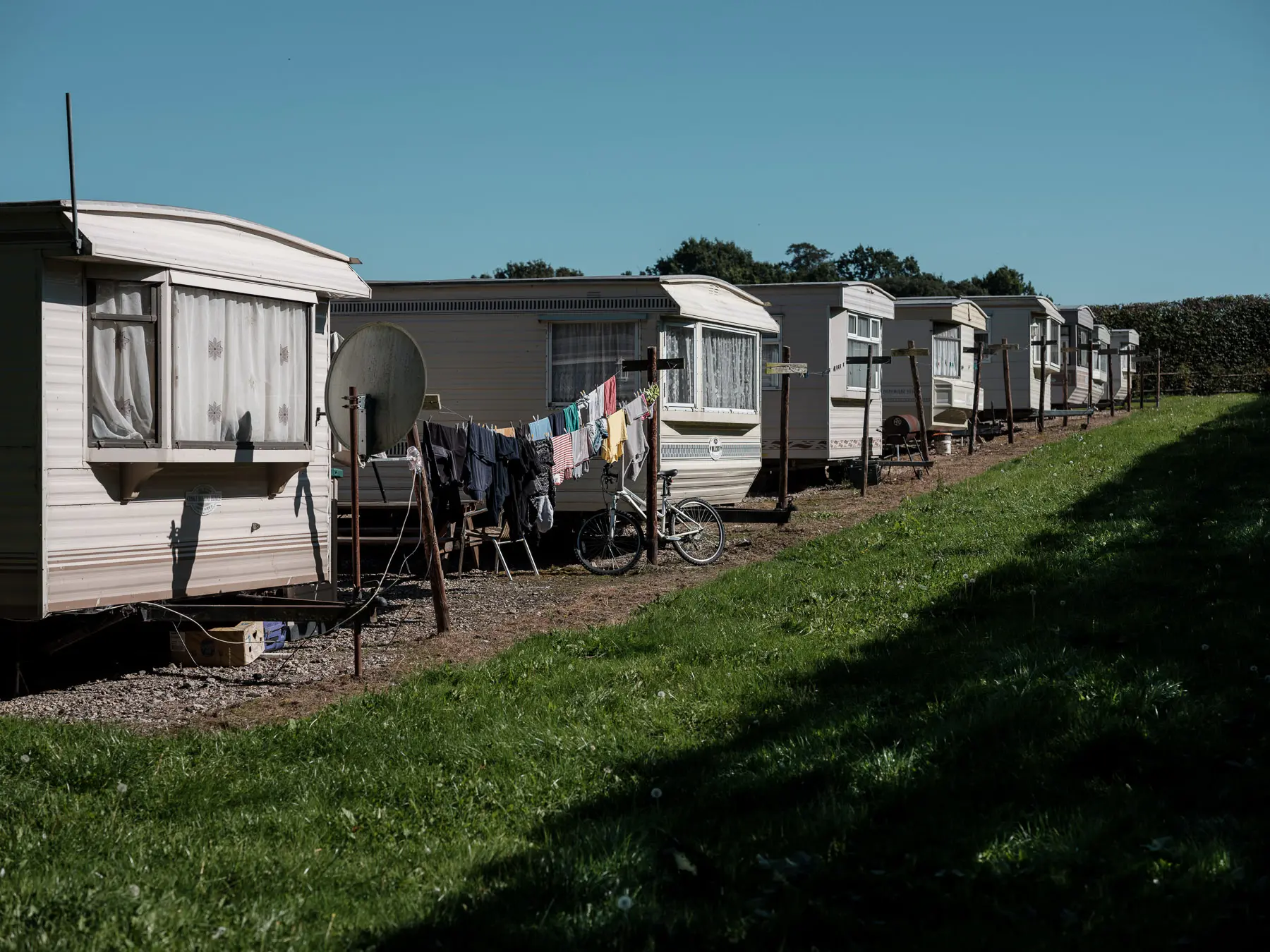
Income from agriculture in Romania is unreliable, because one year “the hail pummelled their melons” and they barely covered their costs, and another year they had “poisonous rain.” They can’t get insurance, because their business is not registered. “Here [in England] you’re left with some money in your pocket, no need to invest in anything,” Paula says.
Many of their friends and neighbours who are also agricultors in Dăbuleni go for seasonal work in Spain, Italy, Belgium, Germany or the UK. “Take us for example – we put money in those houses of ours,” says Relu. “We built the kitchen, furnished it, tiled it, fit a water heater with a sink, too. Two years ago we changed the tin roof on the house – in case anyone was wondering where that money goes to.”
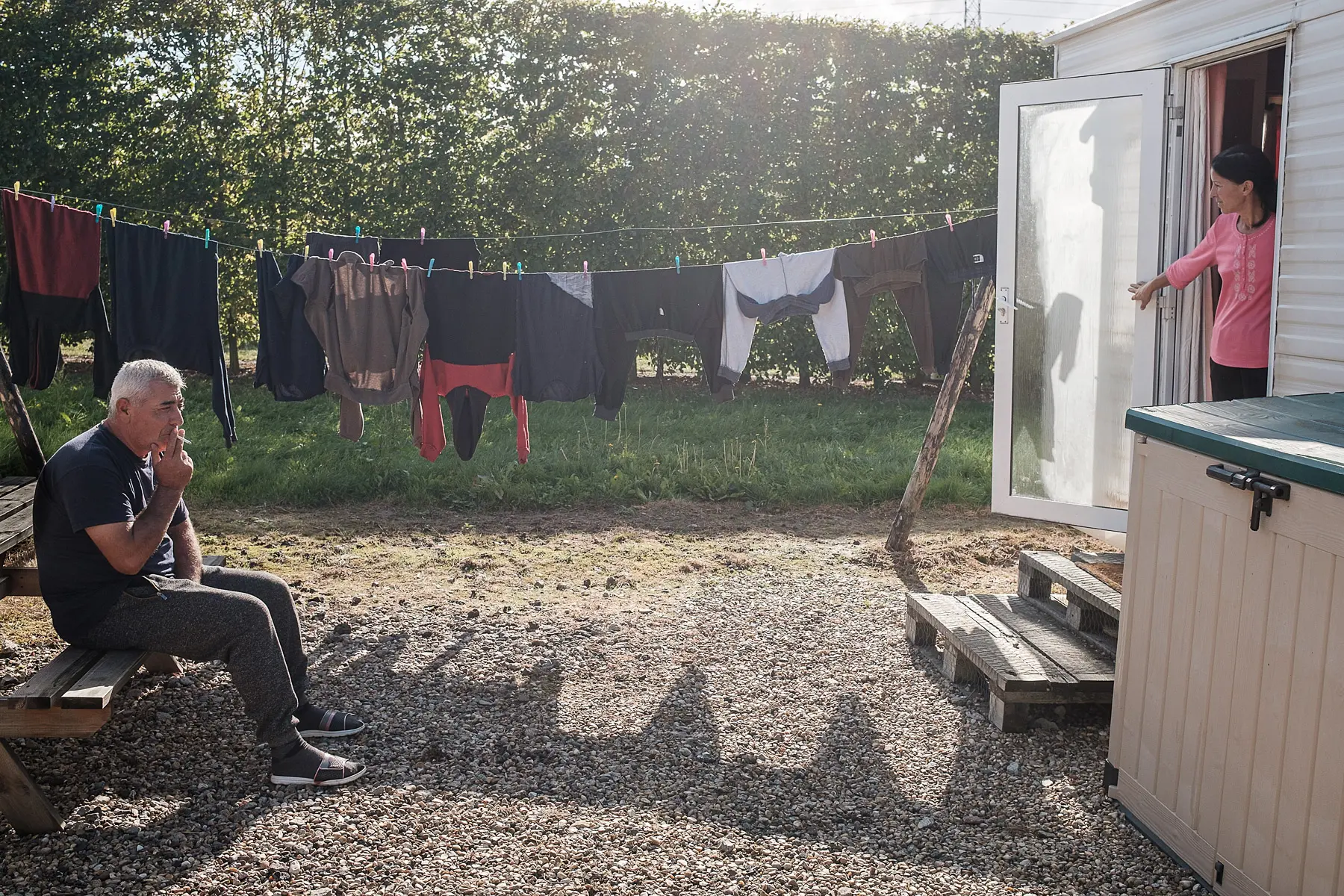
Paula and Relu are considering staying in England over the winter this year, packaging apples in the factory. Relu would rather go back to Romania: “I can’t wait for picking to be over so I can go home.” Paula, though, wants to make money for their children’s weddings: their daughter who stayed back in Romania is pregnant, and Alin has proposed to his girlfriend. “If we go work in the factory, we’ll make some money, bit by bit. If you go back home, you spend it all before you know it.”
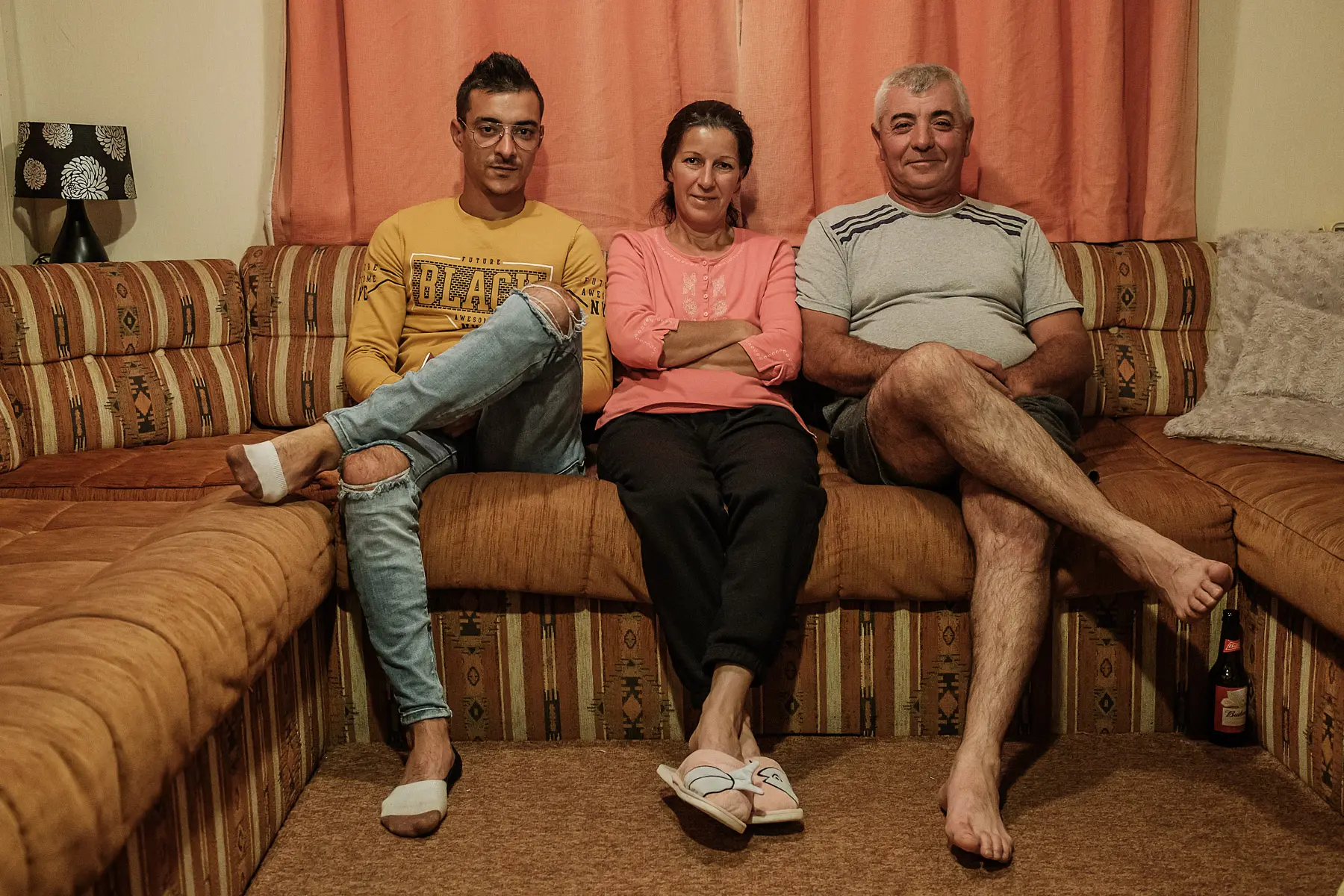
“I saw I was making money and doing better, so I kept going”
The 97 hectares of the Old Parsonage farm produce grapes and several apple varieties – Gala, Braeburn, Bramley, and Red Prince. Until last year, about 85 seasonal workers came here during picking season, but now there are only half as many.
The farm manager, Romanian Radu Țăndărescu, tried to find a solution for the workforce crisis in the UK, which began last year due to Brexit and the pandemic, so he imported apple picking platforms from Italy, which increase productivity and reduce the number of workers needed.
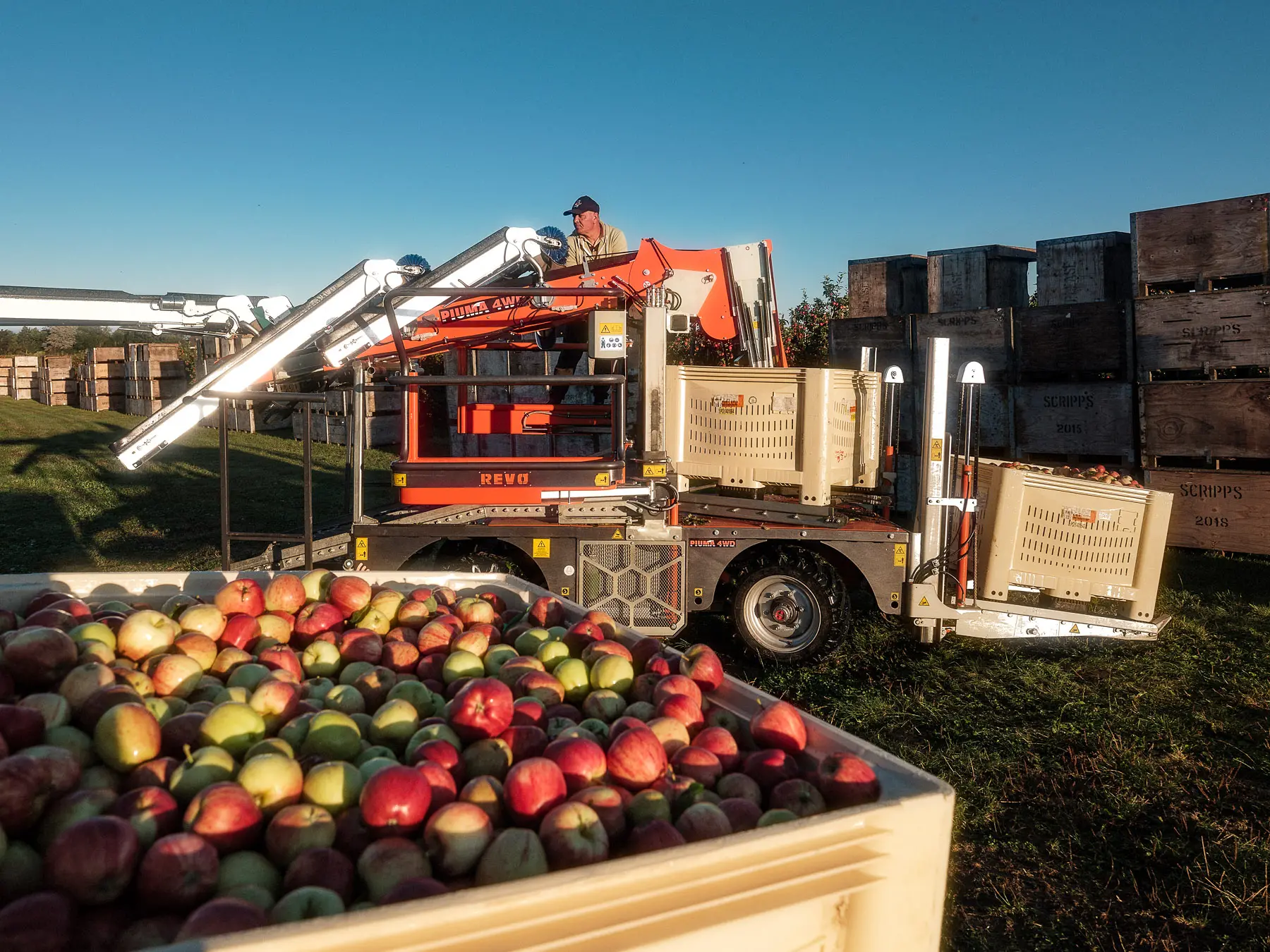
Two of the 41 seasonal workers currently on the farm are Niculina Miri, 57, and Angela Morenciu, 54. The two women are friends and come from Filiași, a town in Dolj County. They came to work in England in early September.
Their life is split between Spain, Romania, and the UK: from February to May they live in the housing modules and pick strawberries in Huelva Province in Spain, and from September to November they live in the caravans and pick apples in Cobham, Kent. They spend the remaining months in Romania, with their families.
“In Spain we shared a kitchen, here we each have one in our caravan,” says Niculina. “But the nice thing in Spain is that we have the bathroom right in our house, in our module. We adapt to the situation – you can’t live like this if you don’t adapt.”
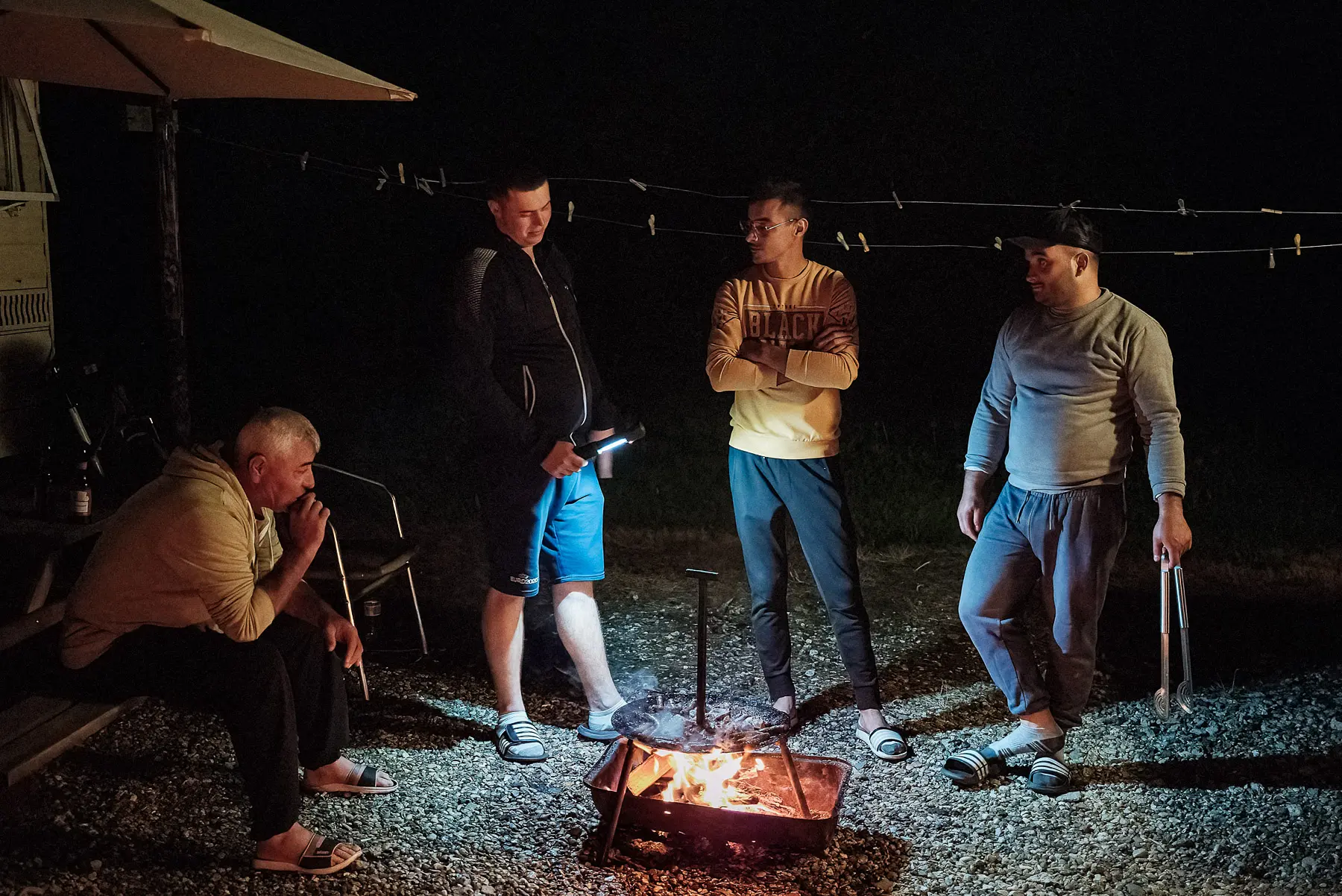
Niculina has spent the last eight years working in agriculture in various EU countries – Spain, Portugal, Germany, Belgium, and the UK. Her last job in Romania was at a confectioner’s that paid her a monthly wage of 1.000 lei (200€, or 170£), which was also supposed to cover her commute. “I had a bit of a hard time with money. My first husband died. I left to work abroad because I just couldn’t make ends meet; the money wasn’t enough.”
Since she started working abroad, Niculina built an indoor bathroom and installed parquet and double-glazing windows in her house. We have heard about the same dream of having “a modern bathroom” from other migrant workers in Spain and Germany: 27% of the Romanian population does not have an indoor bathroom.
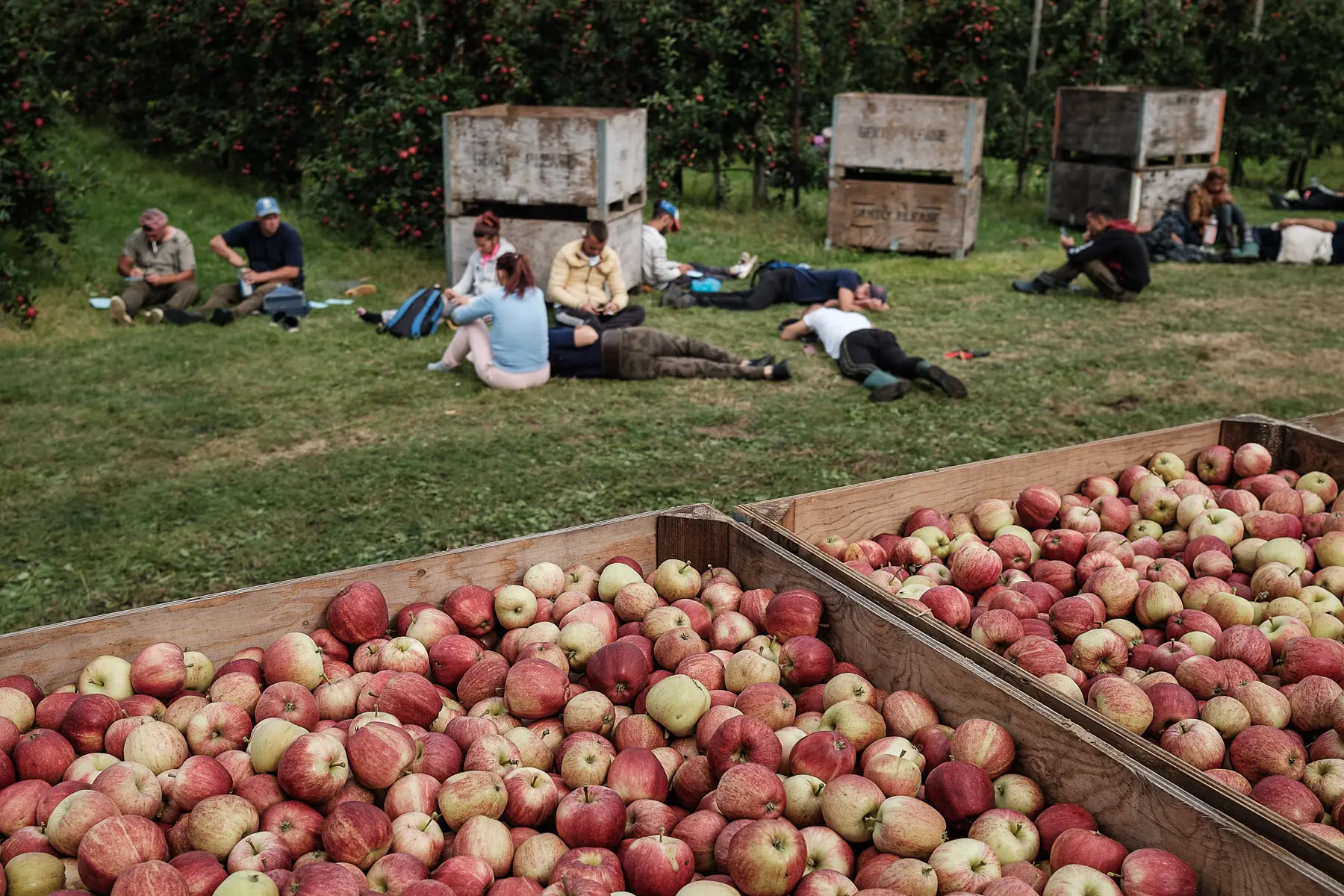
“I saw I was making money and doing better, so I kept going,” Niculina says. “While my arms and legs still hold, I’ll keep doing this.”
In a way, seasonal workers never leave Romania
Last year, Niculina's friend Angela first came with her to work in Spain and England to pay her debts. Her family took out a 15.000 lei bank loan to pay for the funerals of her in-laws, who died two months apart from each other.
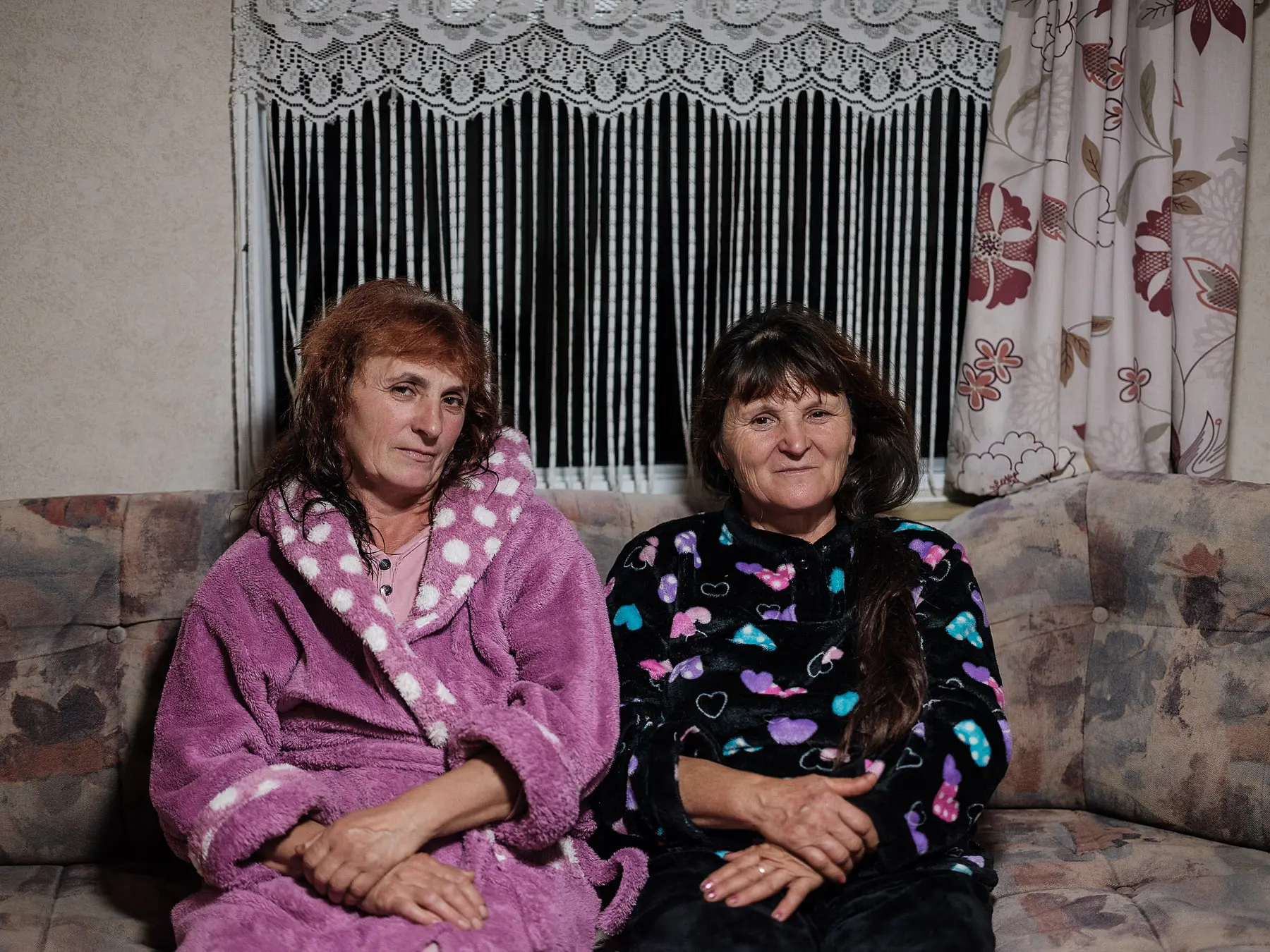
For 11 years, Angela worked as an electrician in the coal mine in Roșia de Amaradia, Gorj County. In 1997, following restructuring, she was fired. She didn’t get another job until last year, when she first left to work in Spain, at 53.
The two friends never leave the farm campus, not even to visit Canterbury, the nearby town, a major tourist destination. “Where would we go? What can we understand of all that?” Niculina says.
Most seasonal workers on the farm are not vaccinated, which reflects the issues currently faced by Romanian and other Eastern European countries: poverty, lack of education, fake news flooding social media, political instability and mistrust in the government.
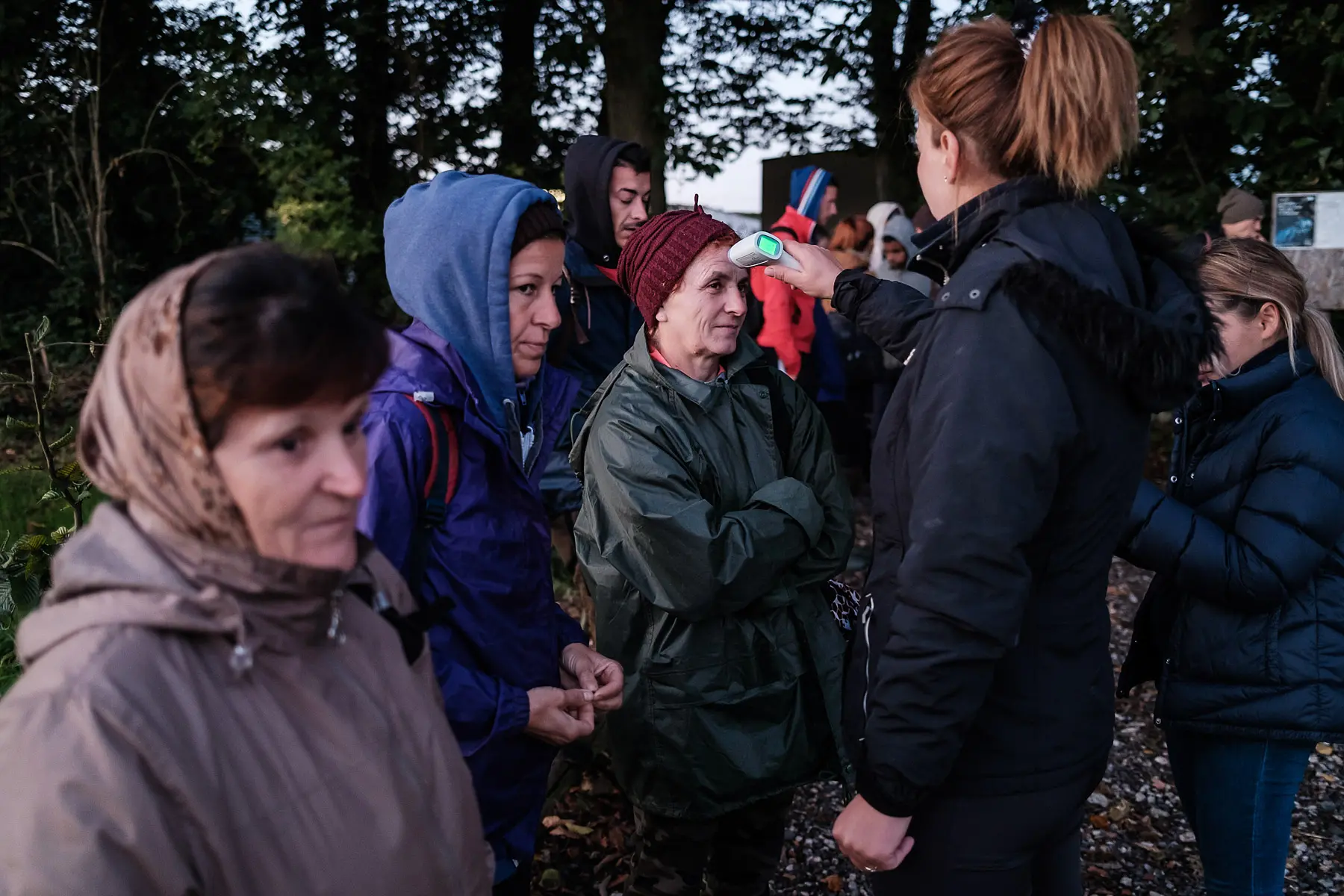
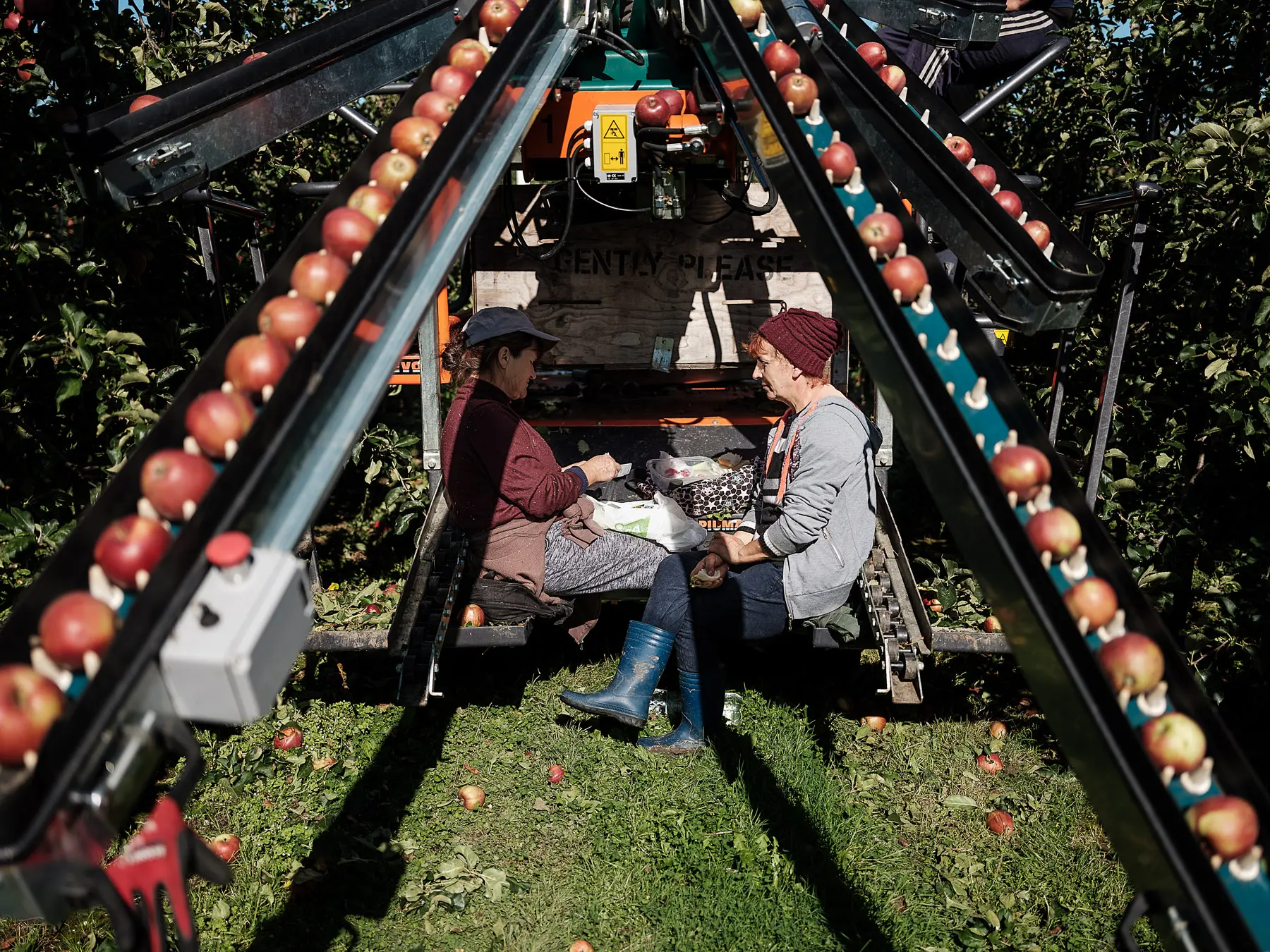
In a way, the seasonal workers at the farm in Cobham never leave Romania. They eat food brought from home, they speak Romanian, they watch Romanian TV and can’t wait to go back to their country and their families. To them, migration is a chore and a consequence of the unemployment and poverty back home.



